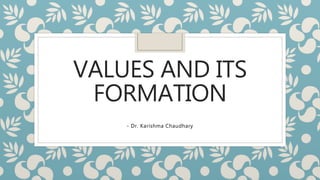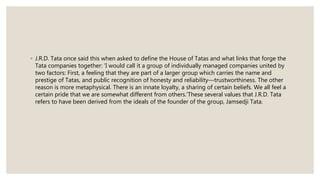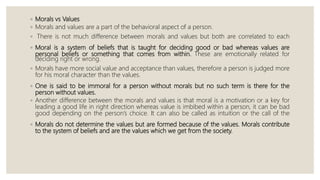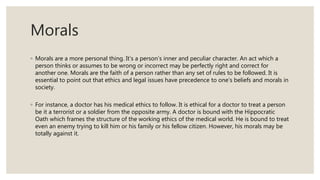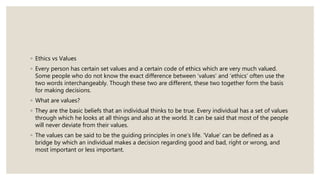1. Morals are generally taught by society and relate to groups, while values come from within individuals and are personal principles.
2. Morals motivate good behavior and are deep-seated, whereas values can change with time and circumstances.
3. Ethics are codes or rules set by groups, focusing on duties, while values are individual beliefs about what is good or desirable.
